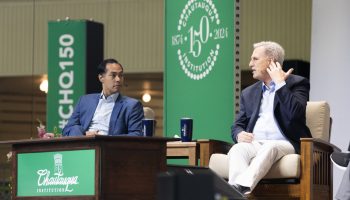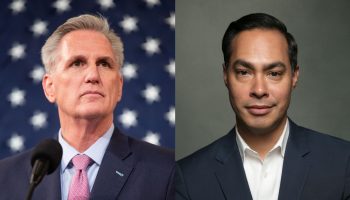MAX ZAMBRANO – STAFF WRITER
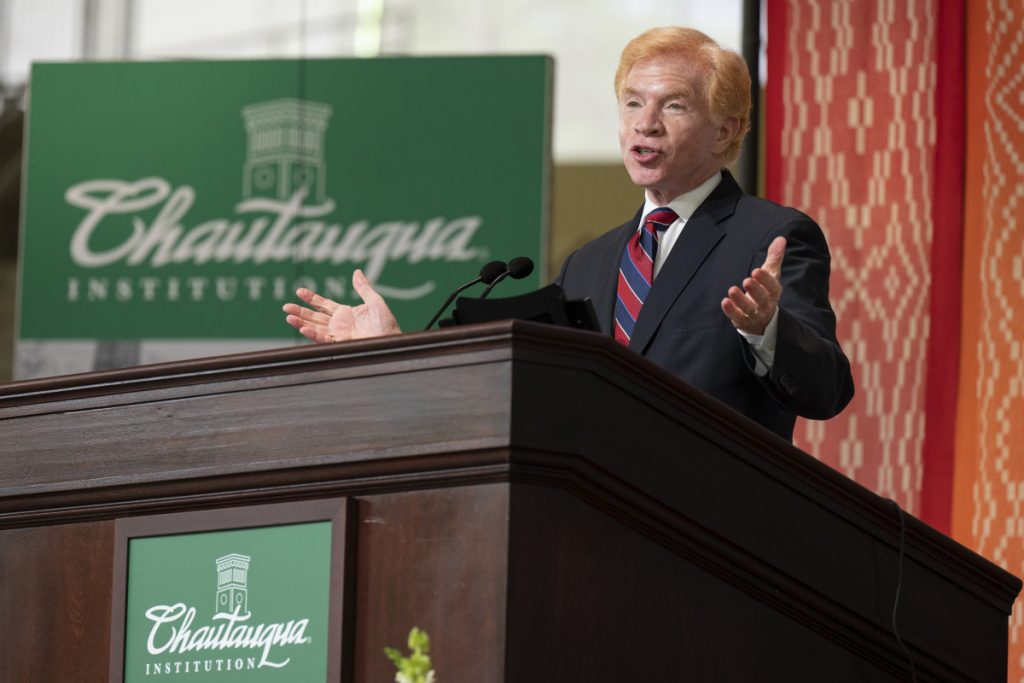
Jewish people have never had a better life than those who have lived in the United States, said Rabbi Gary Phillip Zola, executive director of the Jacob Rader Marcus Center of the American Jewish Archives.
He argued this based on American Jewish exceptionalism, the concept that nowhere else at any point in time have Jews had more opportunity, equality or come closest to the ideals outlined in the founding of the U.S.
This notion differs from American exceptionalism, which is the claim that America is a special nation and inherently different from the rest of the world, and Zola contended that this notion has its upsides and downsides.
Zola sees the American Jewish experience as unique.
He described why Jewish life in America was different at 1 p.m. Wednesday, July 21 in the Amphitheater. His lecture, “American Exceptionalism versus American Jewish Exceptionalism: Actualizing Religious Freedom in U.S. History,” was the last in the Interfaith Lecture Series for Week Four, themed “The Evolving Religious Narrative of America.”
Zola started with four points to prove his argument.
First, he said Jewish history in America began well before the United States became a country, when the first Jewish colony was formed in New Amsterdam in 1654.
“There has been a continuous Jewish communal presence with synagogues since 1654,” Zola said.
Second, Jews actively participated in the fight for America’s independence, Zola said, serving as soldiers, partisans and patriots.
“This is very unusual, that the Jewish community is rightfully entitled to say we helped birth the American nation,” Zola said.
Third, the U.S. Constitution asserts inalienable rights to all men. Without knowing the Constitutional Convention already decided on a separation between church and state, Zola said Jewish immigrant and Revolutionary War veteran Jonas Phillips wrote a letter encouraging it.
“‘ The Israelites will think themselves happy to live under a government where all religious societies are on an equal footing. I solicit this favor for myself, my children and posterity, and for the benefit of all the Israelites through the 13 United States of America, ’” Zola read from Phillips’ letter. “He didn’t know the convention had made that decision, but it tells you what (American Jews) aspired for.”
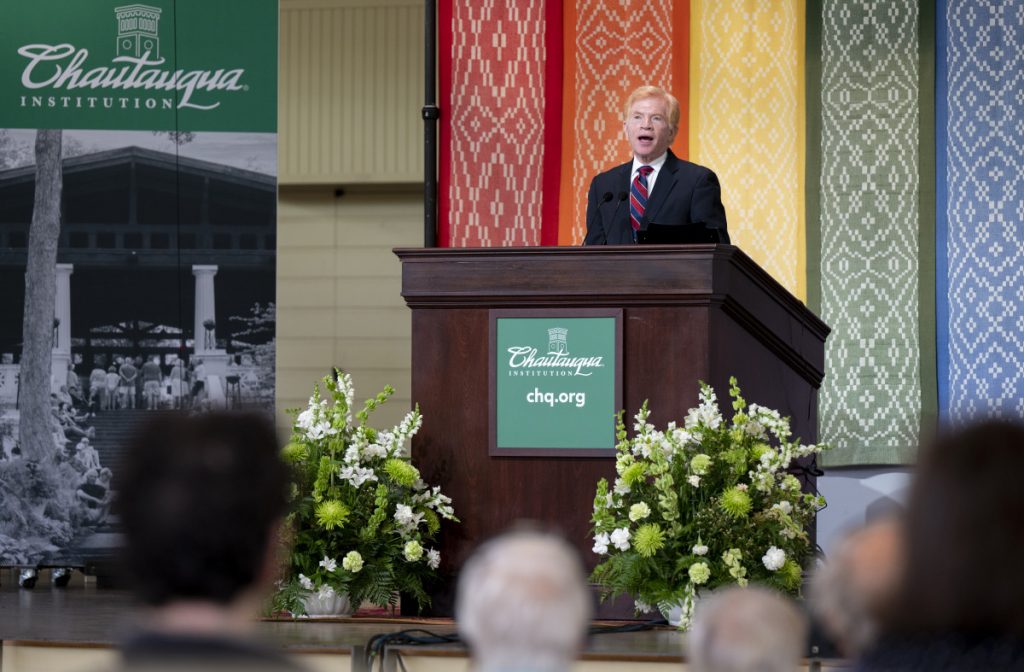
The fourth unique feature was the creation of an independent federal judiciary that gives more credibility to the Constitution, Zola said.
“I can show you the Constitution of the old Soviet Union, and if you read it you would think, ‘My God, this is really on par with the U.S. Constitution.’ But if you don’t have the right to prosecute, then you don’t have equal justice under the law,” he said.
As a professor at Hebrew Union College-Jewish Institute of Religion in Cincinnati, Zola said he teaches his students that they are both Jews and Americans.
“There is nothing about being an American that makes it impossible to be a good Jew, and there’s nothing about being a good Jew that makes it impossible to be an American,” he said. “That has been an idea to which we have clung from the very beginning of our community.”
He gave three examples to support this idea.
The first point related to Phillips’ letter is the idea that Jewish citizens and Judaism are equal to all other religions according to U.S. law, Zola said.
“My second point,” Zola said, “is that Jews not only have the right but the duty to argue that Jews who are U.S. citizens and Jews around the world are entitled to the full protection of U.S. government law, and Jews have the right to advance and advocate for their cause just like all Americans.”
Zola’s third point is based on the Constitution’s distinction between majority rule and inalienable rights.
“American Jewry has always displayed a heightened commitment to minority rights,” he said. “Jews have, from the beginning, been interested in minority rights for themselves and others.”
To summarize his argument to this point, Zola read from an 1827 newspaper. When Zola was pursuing his doctorate, he focused on the Jews of Charleston, South Carolina, and he stumbled upon a note in a newspaper signed with the last name Cohen. Zola recognized this as a Jewish name, and kept reading.
In it, the writer demands an apology from a doctor who had insulted him, or else he shall be prepared to duel, Zola said.
“The Constitution of the United States, and of my native State, give me and every citizen, of every religious denomination, equal rights and equal privileges. Members of the same community are valued only according to their conduct in life, and none but a bigot and a Coward, like Edward Chisolm (the doctor), would attempt to insult a whole nation,” Zola read from the paper.
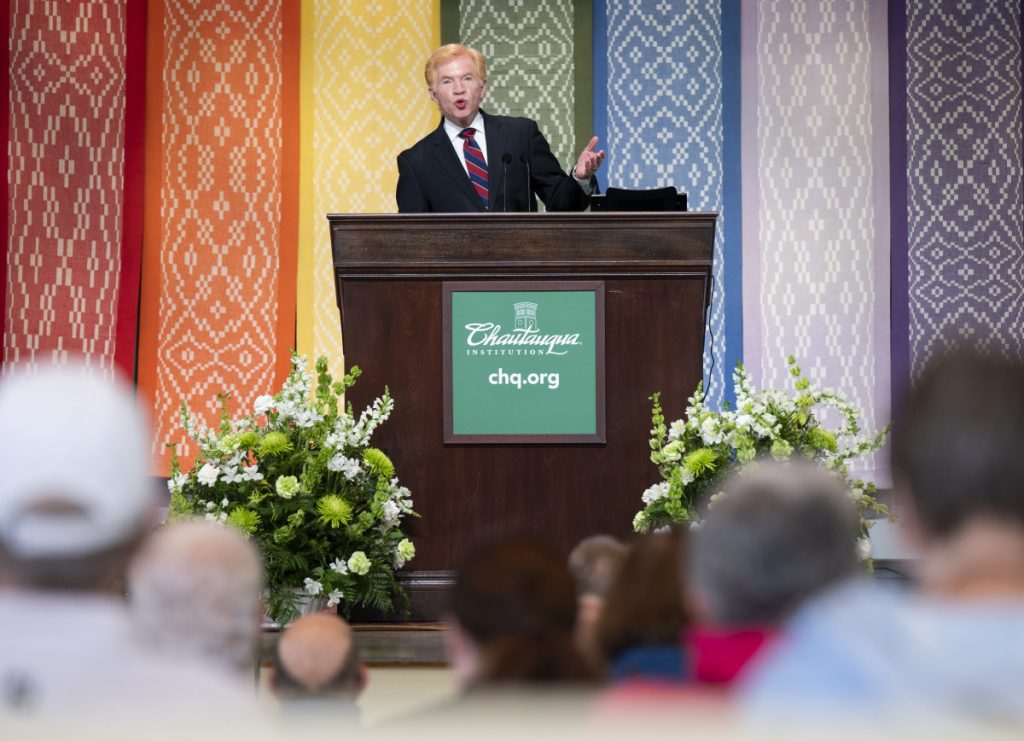
Zola sees this as a great summary of his broader point.
“He speaks not only for the Jews, but of every citizen of every religious denomination,” Zola said. “The Jew has uniquely been positioned, because of the length with which we’ve been here, to be the advocate for bringing the nation closer and closer to its ideals.”
Looking at another letter, this one written by Jewish merchant Jacob Ezekiel, Zola focused on a historic moment in U.S. history. In 1841, one month after his inauguration, President William Henry Harrison died, and John Tyler became the first person to succeed the position through the vice presidency.
In one of his first addresses to the nation, Tyler called on Americans to go to houses of worship and say prayers in sorrow for the fallen Harrison. Zola said in this address, Tyler said this was necessary because Americans are a Christian people.
Ezekiel’s letter called Tyler out.
“I, as well as others, were somewhat surprised to find in the columns of our journals, in the age in which we live, that the chief magistrate of this union shall by official recommendation to the people of the U.S. address us as ‘a Christian people’ … no doubt forgetting that during the revolution of this country, blood of all denominations was shed for its freedom,” Zola read.
Zola noted that Ezekiel did not single out Jews, but defended all denominations in his letter to the president.
Moving to the 20th century, Zola identified Charles Coughlin, who in the 1930s was a famous radio priest who decided Jews were socialists and communists, classifying them as un-American.
“He became the boogeyman of the American Jew in the 1930s, a very difficult period for bigotry toward the Jews,” Zola said.
At a large gathering in Cleveland in 1936, depicted in a video shown by Zola in the Amp, Coughlin applauded attendees for gathering and appreciating that they as Christians believe in loving their neighbor as themselves, and he challenged every Jew to tell him that they do not believe that.
Coughlin’s ideas were challenged by Stephen S. Wise, who Zola called one of the most important and famous Jews in the 20th century. His congregation met in Carnegie Hall from 1910 to 1939, and some of his recordings from there are only housed at the American Jewish Archives, Zola said.
In a 1938 sermon, one meant for radio broadcast that Zola played for the Amp, Wise called Coughlinism the deadliest form of antisemitism in America, and that Coughlinism was another name for anti-democratic and anti-American.
“True, Coughlinism has not explicitly and frankly defended antisemitism or Nazism in Germany,” Wise said. “It would if it dared … For the Jew, Coughlinism is a regrettable phenomenon. For the Catholic Church, it is a disaster. But above all, it is America’s shame.”
Zola reminded the audience that in Jewish history, outside of its own nation-state, it was rare for them to be able to speak this way.
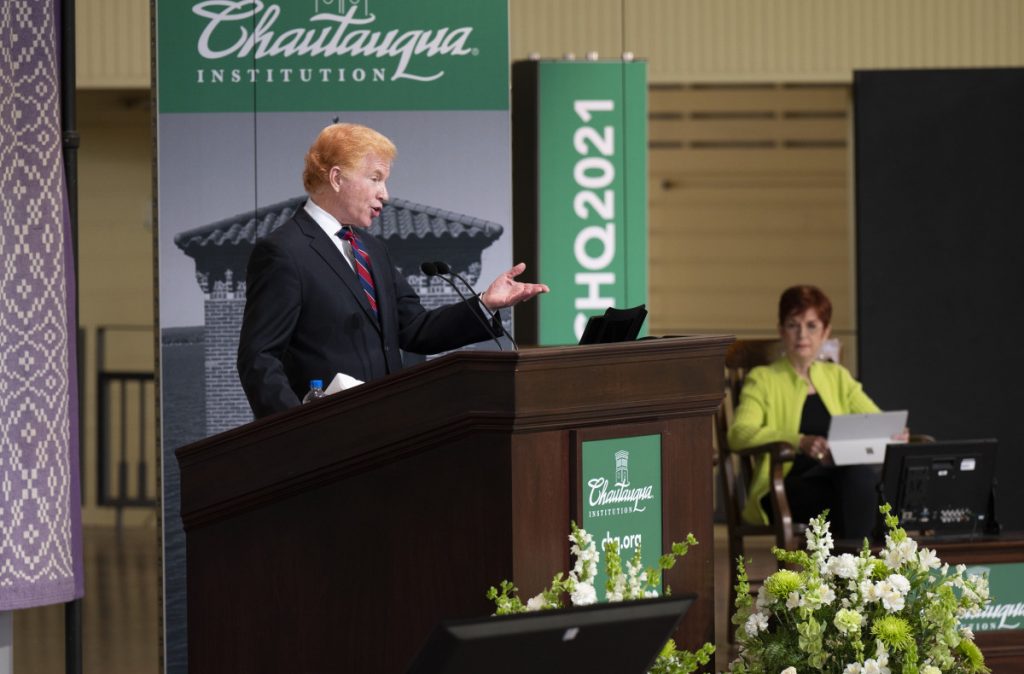
Going back to his point of Jews and Judaism being protected under U.S. law anywhere in the world, Zola highlighted Jacob Schiff, one of the founders of the American Jewish Committee in 1906. This group sought the advancement of Jewish rights, Zola said.
At the beginning of the 20th century, Jews in Russia were subject to intensifying brutalization and riots against them. U.S. Jews attempted to abrogate an existing 1911 treaty by testifying before the House of Representatives Committee on Foreign Affairs.
Several people testified, but Zola read from Schiff’s comments.
“If any of you who may happen to confess the Jewish faith, any American who was accidentally born of Jewish parentage, wants to go to the Far East today, and wants to take the shortest route possible … the Trans-Siberian Railway. When he comes to the Russian border he is told ‘No thoroughfare.’ Just think of what that means to an American,” Zola read.
Schiff continued, comparing this situation to what would happen if Russians were stopped at the Panama Canal, which was set to be completed a few years later with U.S. help.
“What a howl there would be on the part of the civilized world,” he read.
To Schiff and his committee’s satisfaction, the treaty was abrogated.
Zola then went back to his point on minority rights granted through the Constitution. He focused on Richard Wright’s 1940 fictional book Native Son, where a Black man is on trial for the murder of a white woman; if he is convicted he will be sentenced to death.
He is assigned a Jewish lawyer, who tells the man that no matter how noble an argument he puts forward, they were destined to lose to a jury, which is exactly what happened, Zola said.
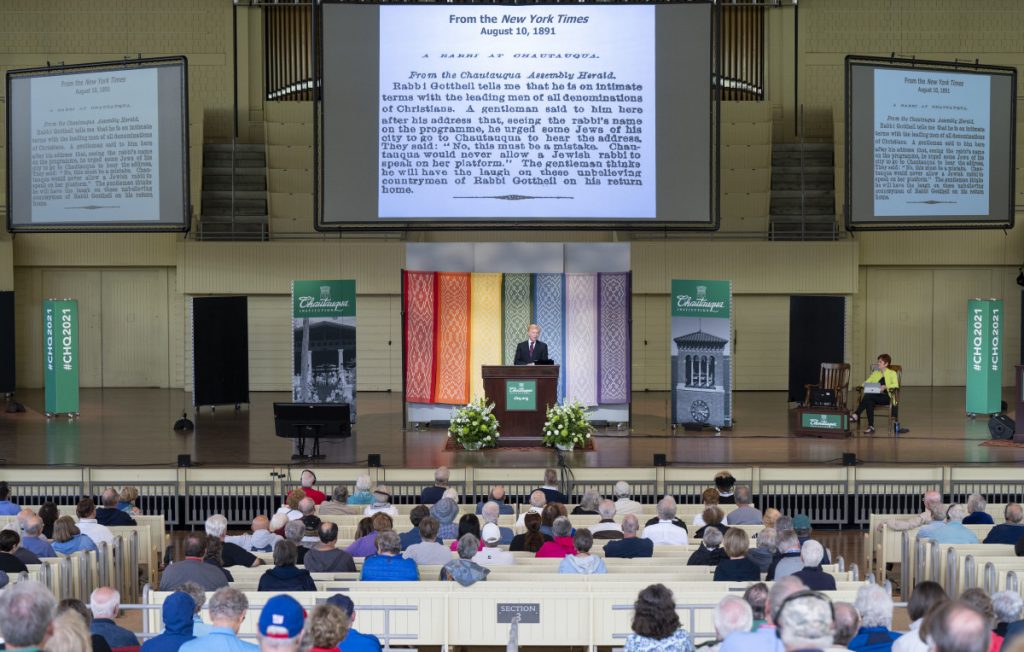
In a 1940 sermon, Wise reviewed this book.
“As I read Native Son, the word and the mind and the understanding and compassionate soul of the Jewish lawyer became to me at one and the same time symbol, rebuke, prophecy, challenge,” Wise wrote. “It’s a symbol of what the Jew should be and do in relation to other races that are oppressed and ground into the dust.”
Zola wanted the audience to focus on one line he later said that further illustrated Jews’ dedication to supporting all minority rights.
“I feel a double obligation to every oppressed race and to every wronged man on earth, for I am an American, and I am a Jew,” Wise wrote.
In another example, Zola mentioned Rabbi Milton Grafman, a Birmingham, Alabama, rabbi who, after the September 1963 bombing of the 16th Street Baptist Church that left four children dead, gave a sermon during Rosh Hashanah.
During the sermon, which Zola emphasized being on a High Holy Day, Grafman was speaking to some people who only attended twice a year. He said he attended the funeral because he wanted to show his sorrow between all communities.
Additionally, the person who spoke directly before Martin Luther King Jr.’s August 1963 “I Have a Dream” speech was American Jewish Congress President Joachim Prinz, which Zola said embodied all of American Jewish exceptionalism.
To close, Zola reflected on the first rabbi to speak at Chautauqua, Gustav Gottheil, who spoke on the grounds in 1891. Zola wanted people to make good on Gottheil’s prayer.
“I believe this Chautauqua is a very good foretaste of the things to come, and that the light of its influence will spread to the length and breadth of this land,” Gottheil said. “It may still be remembered that on this day … really commenced the grander day when all the walls of separation between the Hebrews and this good and great nation, upon whom I pray God may send that blessing.”


